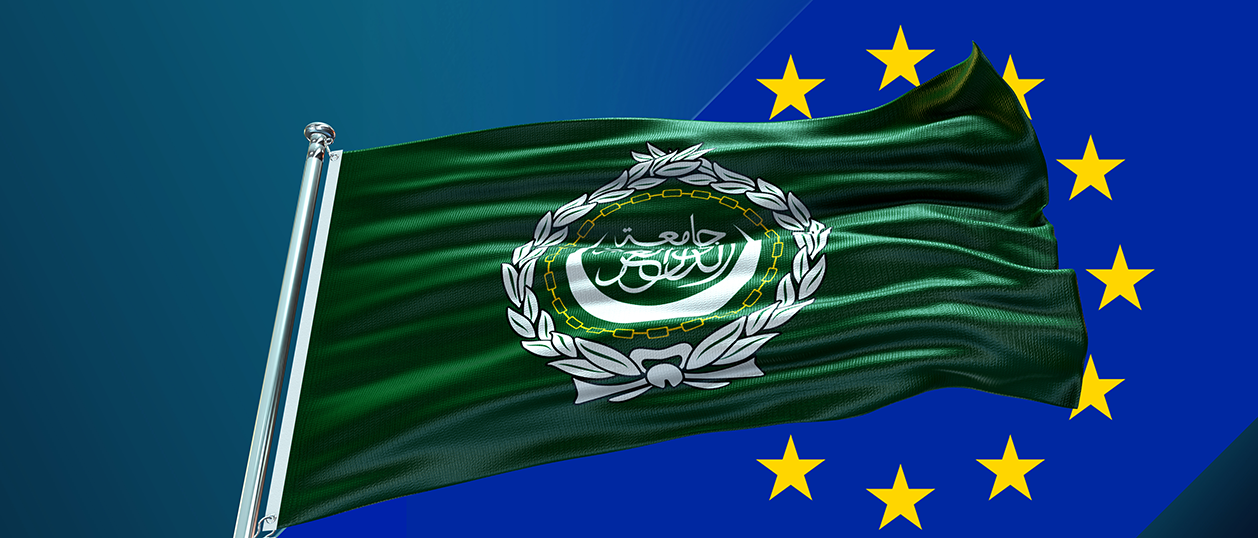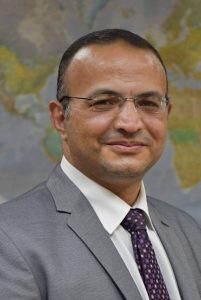The European Union’s interest in ongoing crises in the Arab world does not represent a new development but has been a continuing theme over the past decade. However, the scope of EU involvement has changed recently, as evident by the 3bn Euro aid package allocated to Turkey to renew the migration agreement in view of the complex situation in Syria. The EU also expressed support for the elections due to take place in both Iraq and Syria and has made efforts to encourage Iran to resume negotiations in Vienna over the nuclear agreement. The expanded scope of EU efforts can be closely linked to the American withdrawal from Afghanistan, in an attempt to avoid a new wave of refugees, reduce the possibility of new wars, and support efforts to reach political settlements in the Arab region.
Widening Involvement
The EU has recently signaled its increased interest in regional crises, especially aspects that directly impact Europe. In this context, spokesperson for the European Commission for Migration, Oliver Varhelier, announced, on September 8, that the Commission is currently preparing to announce a new aid package to Turkey amounting to 3 billion Euros, as part of the European Union’s efforts to re-extend the migration agreement and stop the flow of refugees. The agreement was originally signed on March 18, 2016. The EU is giving this agreement special attention, although it is facing difficulties, as Turkey is accusing the EU of failure to fulfill some of certain obligations, and is seeking further privileges in the renewed agreement between both parties.
The EU was also keen to confirm its support for the political process underway in Libya. This was illustrated by the visit of the High Representative of the European Union for Foreign Affairs and Security Policy, Josep Borrell to that country on September 8th. Borrell stressed that the EU aims to play a major role in the long-term process of institution building, beyond supporting the legislative and presidential elections to be held on December 24th. Borrell had also paid a visit to Iraq two days earlier, where he affirmed the EU’s support for holding the legislative elections on October 10, noting that “a strong Iraq will have a great impact in the region.”
In parallel with these efforts, the EU has also shown a special interest in the Iranian nuclear negotiations. The President of the European Council, Charles Michel had a telephone conversation with the Iranian President, Ibrahim Raisi, on September 8th, with the aim of urging Iran to resume the negotiations that had stopped in Vienna last June.
EU Goals
The growing interest of the European Union in the developments in Arab crises can be explained by the following factors:
- Dealing with changing US policy: The US withdrawal from Afghanistan has created confusion over US policy and has led EU countries to reconsider their security strategy, especially due to their geographic proximity to crises in Arab countries and the wider Middle east. The EU is endeavoring to contain threats that may arise from these crises, as well as defending its interest. This has been reflected in concerns of politicians in various countries. For example, in Germany, Armin Laschet the candidate of the Christian Alliance competing for the chancellorship, pointed out that the threats facing Europe create a need to expand its available options to deal with upcoming challenges.
- Avoiding new waves of refugees: The EU’s swiftness in announcing the new aid package to Turkey is related to the pressure exerted by the Turkey to extend the scope of the agreement signed in 2016 to include Afghan refugees, in addition to Syrian refugees. New waves of Afghan refugees arrived in Turkey, in preparation for crossing over to Europe, after the Taliban took control of Kabul, on August 15th.
The EU may seek a compromise with Ankara to prevent such an influx of Afghan refugees. Turkish Foreign Minister Mevlüt Çavuşoğlu, during his meeting with his Dutch counterpart Sigrid Kag on September 2, indicated the need to amend the agreement to include new developments. The Turkish foreign minister declared that: “We need to update this agreement to include many issues, including the voluntary and dignified return of Afghans to their country if security and stability are established in Afghanistan tomorrow, as well as the safe return of Syrians to Syria.”
- Ending the presence of foreign fighters in Crisis zones: The EU believes that militias introduced by Iran and Turkey to fight in Syria and Libya, are a main reason these conflicts have become protracted and difficult to conclude through political settlements. Therefore, the EU’s focus on the idea of “building up the institutions of the Libyan state” can be interpreted as an attempt to reduce the presence of mercenaries in Libya, within the framework of efforts to support stability at various levels inside Libya during the next stage of its political transition.
- Ending Regional and international “Score settling”: The countries of the EU show a special interest in strengthening the Iraqi state’s ability to fight terrorism. They believe this can reduce the negative impact of this continuing terrorist activity on European interests in Iraq, as well as reducing the ability of these organizations to establish cells or smuggle their members into EU to carry out operations. Based on that idea, the priority is to support the efforts made by Prime Minister Mustafa Al-Kazemi to end the process of “score settling” by regional and international actors on the Iraqi scene. This applies particularly to the confrontation between Iran and the US, as this strengthens the influence of pro-Iranian militias, and weakens the state’s ability to establish security and stability on various levels.
- Reducing the possibility of a new war: Despite the tireless efforts made by the United States and EU countries to resume the Vienna negotiations, Iran is not showing flexibility, especially as Iran continues to make progress with its nuclear activity. The International Atomic Energy Agency released a report, on September 8, which confirmed that the amount of uranium enriched at 60% is now about 10 kilograms, and that the amount of 20% enriched uranium increased from 62.8 kg to 84.3 kg. The US no longer excludes the possibility of failure in negotiations and the collapse of an agreement. This may prompt the use of a military option, especially considering the pressures exerted by Israel in this regard.
Therefore, to avoid the military scenario, EU countries are seeking to convince Iran to show greater flexibility and speed the resumption of negotiations. To achieve this, it has begun introducing other options, such as strengthening the American-European alliance to confront Iran during the upcoming period. It has realized that Iran has tried in the past period to exploit the differences between the US and European countries to expand its margin for maneuvering.
In sum, the European Union seeks to adopt a new policy that responds to changes in the international arena, which are beginning to impact its neighboring regions, with the fallout from crises impinging on EU borders in a way that directly threatens the security and interests of EU countries.


